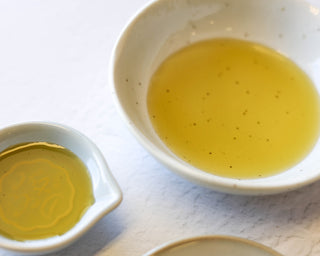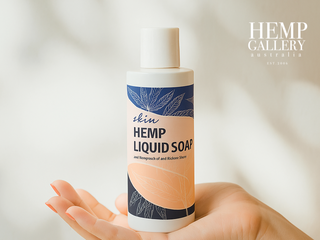Hemp oil, derived from the seeds of the Cannabis sativa plant, has gained popularity for its potential health benefits and versatility in culinary applications. However, concerns about its safety as a hemp food product have also emerged. In this article, we will explore the safety aspects of consuming hemp oil and examine the evidence and considerations surrounding its use in food.
Composition and Processing
Hemp oil is extracted from hemp seeds, which are known for their nutritional richness. It is important to note that hemp oil should not be confused with CBD oil, which is derived from the flowers and leaves of the hemp plant. Hemp oil does not contain significant levels of cannabinoids like CBD or THC (tetrahydrocannabinol) and is typically produced from industrial hemp varieties with negligible THC content.
Hemp oil is typically cold-pressed, a process that involves mechanical extraction at low temperatures to preserve the oil's natural properties. This method helps retain the oil's nutritional profile, including essential fatty acids, vitamins, and minerals.
Safety Considerations
-
THC Content: One of the primary concerns regarding hemp seed oil is the potential presence of THC, the psychoactive compound found in cannabis. However, reputable manufacturers ensure that hemp oil produced for food purposes contains negligible levels of THC, typically below the legal limit of 0.3%. It is important to choose products from trusted sources and review third-party lab testing results to ensure THC compliance.
-
Allergenic Potential: Hemp seeds and hemp oil are generally considered safe for most individuals. However, in rare cases, people with allergies to cannabis or seeds in the Cannabaceae family may experience allergic reactions to hemp products. If you have known allergies to these substances, it is advisable to exercise caution and consult with a healthcare professional before consuming hemp oil.
-
Processing and Contamination: The quality and safety of hemp oil depend on the production and processing methods. Reputable manufacturers follow stringent quality control measures to ensure that the oil is free from contaminants, pesticides, heavy metals, and other harmful substances. When purchasing hemp oil, opt for products that undergo third-party testing to ensure their safety and quality.
-
Storage and Rancidity: Like any edible oil, hemp oil can become rancid over time. It is important to store hemp oil properly in a cool, dark place and seal it tightly to prevent oxidation and maintain its freshness. Rancid oil may have an unpleasant taste and odour and may not be suitable for consumption.
Health Benefits and Uses
Hemp oil is known for its potential health benefits due to its nutritional composition. It is a rich source of omega-3 and omega-6 fatty acids, which are essential for overall health and well-being. These fatty acids play important roles in supporting cardiovascular health, brain function, and reducing inflammation in the body.
Additionally, hemp oil contains vitamin E, an antioxidant that helps protect cells from damage caused by free radicals. It also provides minerals such as phosphorus, potassium, magnesium, and zinc, which contribute to various physiological processes in the body.
Hemp oil can be used in a variety of culinary applications. It has a mild, nutty flavour that complements salads, dressings, dips, and smoothies. It can also be used as a finishing oil for cooked dishes or incorporated into baked goods for added richness and nutritional value.
When sourced from reputable manufacturers and consumed in moderation, hemp oil is generally considered safe for consumption. It is essential to select products that comply with THC limits and undergo third-party testing to ensure quality and safety. As with any food product, individuals with known allergies or sensitivities should exercise caution. Hemp oil offers potential health benefits due to its nutritional composition, including essential fatty acids and antioxidants. However, it is always advisable to consult with a healthcare professional or registered dietitian before making significant changes to your diet or incorporating hemp oil into your routine.



